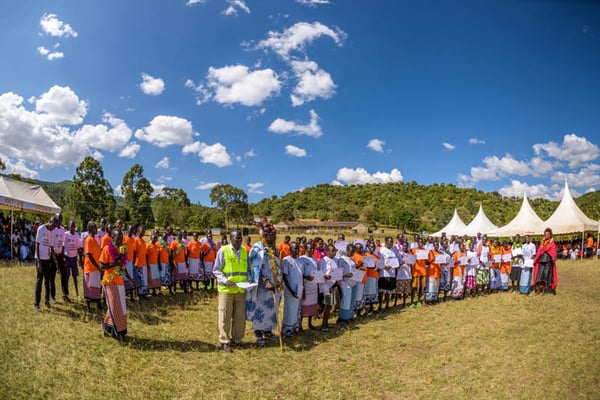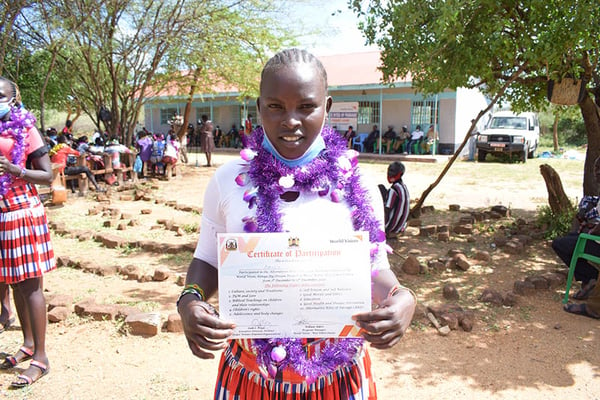 We all know the power words can have over us when we’re young. If our value is affirmed by our family or community, we feel empowered and confident to pursue dreams. But if we hear negative or belittling words about our worth, we’re more likely to be held back from dreaming big.
We all know the power words can have over us when we’re young. If our value is affirmed by our family or community, we feel empowered and confident to pursue dreams. But if we hear negative or belittling words about our worth, we’re more likely to be held back from dreaming big.
It’s no different for children around the world. That’s why part of our child protection work in places like Kenya is about restoring a sense of worth and dignity to girls who have been told that their value isn’t in their mind or their potential, but in how much money a man will one day pay to marry them.
Join us in the West Pokot region of Kenya, where we have the privilege of hearing about a Kenyan girl’s experience with the powerful effect of words — and how she’s embracing new truths about herself thanks to a transformative World Vision program.
Daicy's Story
In mid-December 2020, Daicy, a 17-year-old from West Pokot’s Masol community, went through a ceremony called Alternative Rites of Passage (ARP). Both girls and boys learn new ways of considering their futures through trainings covering the physical consequences of female genital mutilation (FGM) and child marriage, biblical self-esteem, the importance of education, and more.
As Daicy sat in the ARP training room, she was sad, even disappointed, amid her excitement at learning these things. The training opened her eyes to new and hopeful views about her status in society and her potential. Daicy explained that, as a girl, she was taught to believe she “cannot make important decisions or participate in community events, and no man from the community will marry [her]” without FGM.
Daicy grew up in a large, traditional family. When Daicy was 13, her grandmother told her it was time to undergo FGM, but Daicy decided to ask her mom’s opinion first. Daicy’s mom had bigger dreams for her daughter — and she refused to let Daicy undergo FGM. Of her choice to pursue education, Daicy explained, “My community holds traditional beliefs very dearly and girls like me are looked down upon, and the majority of them never transition from elementary school to high school. Were it not for the strictness of my mum, I could be somebody’s wife by now.” Instead, Daicy is now in 11th grade.

Through the Kenya Big Dream project, Daicy and 76 others ages 12 to 18 went through the village’s first ARP training. In the Masol community, 90% of girls undergo FGM, and the child marriage rate is 80%. Asked what she had learned during the ARP, Daicy said, with tears, “When the facilitator was teaching us on the dangers of FGM and its lasting effects on a woman’s body, I recalled what happened to my older sister who underwent FGM. She succumbed to peer pressure and without my mum’s knowledge, she did it. When she got married, she had problems giving birth and she almost died. Even now her body has lost control over the passage of urine and stool.”
Knowing their worth
At its core, the Kenya Big Dream project aims to speak new life into these girls and boys. Through months-long life skills trainings and educational support, girls hear, “You’re worthy of pursuing dreams — an education, a career, a husband and family on your own terms.” During classes on biblical values, they understand, “You’re deeply loved. God created you with immense potential.” As both girls and boys are empowered to play active roles in changing cultural norms, influencing their peers and parents, children learn, “We can respect our traditions without harming girls.”
Of her culture’s deeply ingrained beliefs about women, Daicy said, “These are falsehoods indoctrinated to us at an early age.” How did she discover these words weren’t true of her identity? Without a determined mother and the ARP process to help her reimagine, Daicy wouldn’t have known another option. The biggest thing she learned through the ARP was the truth of who she is. Now, “[I] realize that as a girl I am first a child of God, [then] a valuable member of the community and the world.”








